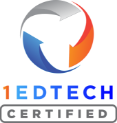Dr Jon Turner, Director, Institute for Academic Development from The University of Edinburgh was a keynote speaker at PebbleBash 2024. ‘Curriculum Transformation at the University of Edinburgh – Co-creation and the relationship between local innovation and institutional change’. Click here to watch the video with the full transcript or if you’re having trouble viewing the video above.
–START TRANSCRIPT–
Thanks very much for the opportunity to join you here today.
Curriculum reform or transformation is on the agenda a lot of universities at the moment internationally, including Edinburgh, and I suspect several of the universities that are represented in the room today.
And in thinking about institutional curriculum reform or transformation, the relationship between institutional level changes and local innovation is absolutely critical.
And that’s what I’m going to make the theme of my presentation today as I walk you through some of the things that we’ve been doing at Edinburgh and some of the things that we’re planning for the future.
So for example, in some areas, for example, taught Postgraduate here at Edinburgh, our regulations, processes and systems have simply not been able to keep up to date with the huge changes that we’ve seen over the last fifteen to twenty years in both the scale and the diversity of our postgraduate provision.
And one of the other things that I’ve heard around the university on numerous occasions is that current limitations with our systems or regulations or sometimes how those systems and regulations are used or interpreted are a real barrier to innovation.
So the opportunity and challenge that we have through curriculum transformation is to develop a curriculum framework that we can then use as a reference point to update and enhance those sorts of institutional enablers whilst making sure that in the way that we bring them in, we’re being flexible and adaptable enough and the framework is flexible and adaptable enough to support innovation and agency, to really make sure that the academic and professional colleagues who lead teaching and learning in the university are able to drive that and make the decisions about what matters and what the right approach is for them and their students in their situation.
So over the next thirty minutes or so, what I’m going to do is talk you through where we’ve got to in developing proposals for curriculum framework and its introduction.
And I’ll focus on some of the ways in which we’ve drawn on institutional experience and expertise to develop and to co-create these proposals.
And I’ll illustrate this by touching on some of the topics like skills development.
That wasn’t me. Skills development, reflection, experiential learning, assessment practice and program level assessment you’ll be discussing in the next couple of days.
Curriculum reform initiatives set off at universities for all sorts of different reasons.
In Edinburgh, we were very clear that the ambition and the purpose, primary purpose is to maximise the positive educational benefit for students.
It’s not primarily about fixing things that are broken or changing the portfolio of programs and courses that we offer, although that is relevant as well. What we’re wanting to do is build on what’s already very good and at the same time make sure that we’re doing everything that we can to prepare our students for an increasingly dynamic and challenging world beyond graduation.
We’re also trying to deliberately use curriculum transformation to improve the experience for staff and students, trying to address some of those pinch points that I mentioned at the very beginning and also make it easier to update our range of programs and courses that we offer.
The scope of curriculum transformation Edinburgh, as Shane said, is very broad. It’s all areas of our undergraduate curriculum, so that’s bachelor’s degrees. It’s all areas of our postgraduate curriculum. So that’s our taught master’s degrees and other taught postgraduate provision as well. And it’s also very broad in terms of its scope. We’re looking at curriculum structures.
We’re looking at curriculum design principles. We’re looking at approaches to teaching and learning and most importantly, how we support the approaches to teaching and learning and assessments that are important to colleagues and students.
And it’s a very long term project. We’re probably likely to run for at least five more years, maybe more like ten years before the changes are fully through the system. We’re also at a really important transition point in the project just now. As I’ll explain in a moment, we use 2021 and 2022 to do quite a lot of scoping and background work for curriculum transformation.
Then during 2023, we started to develop some initial propositions and proposals.
–END TRANSCRIPT–







